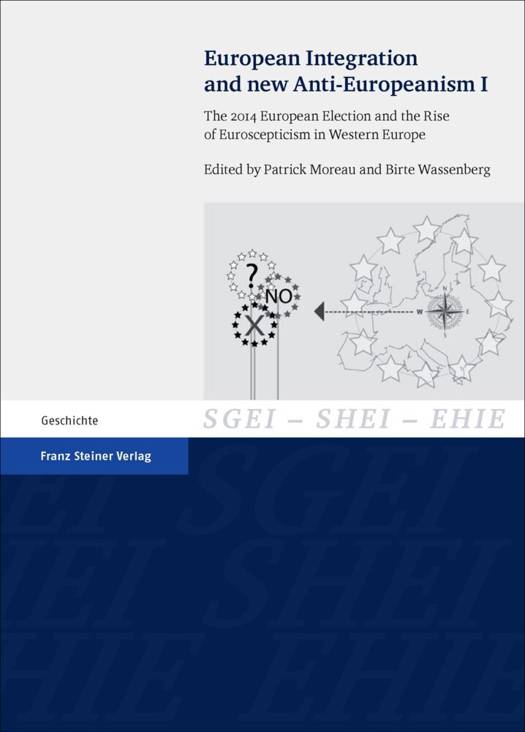
- Afhalen na 1 uur in een winkel met voorraad
- Gratis thuislevering in België vanaf € 30
- Ruim aanbod met 7 miljoen producten
- Afhalen na 1 uur in een winkel met voorraad
- Gratis thuislevering in België vanaf € 30
- Ruim aanbod met 7 miljoen producten
Zoeken
European Integration and New Anti-Europeanism. Vol. 1
The 2014 European Election and the Rise of Euroscepticism in Western Europe
€ 125,95
+ 251 punten
Omschrijving
The economic crises since 2008, the tensions concerning the Euro, the Greek question and the refugee problem have fuelled a strong "Eurosceptic" movement. At the 2014 European elections, the rise of Eurosceptic forces could be observed in virtually all Member States of the EU. This publication regroups the contributions to a Conference organized 2014 in Strasburg by the CNRS-University of Strasbourg research unit "UMR Dynamiques europeennes", in the framework of the IDEX excellence project "The European Integration and the New Anti-Europeanism". In this first of two volumes, anti-Europeanism and Euroscepticism are examined as political phenomena and objects of interdisciplinary research. The focus is on "traditionally" Eurosceptic Great Britain and on sometimes very recent anti-European movements within the EC founding states (France, Germany, Italy, and the Netherlands), their discourses and voters. What reasons prompt anti-European voters: rejection of immigration, xenophobia, fear of the future, nationalism or the rejection of capitalism and globalization? Or is it the collective disappointment with the incapacity of the European elites to communicate with the majority of voters?
Specificaties
Betrokkenen
- Uitgeverij:
Inhoud
- Aantal bladzijden:
- 209
- Taal:
- Engels
- Reeks:
- Reeksnummer:
- nr. 27
Eigenschappen
- Productcode (EAN):
- 9783515112536
- Verschijningsdatum:
- 2/08/2016
- Uitvoering:
- Paperback
- Formaat:
- Trade paperback (VS)
- Afmetingen:
- 170 mm x 239 mm
- Gewicht:
- 366 g

Alleen bij Standaard Boekhandel
+ 251 punten op je klantenkaart van Standaard Boekhandel
Beoordelingen
We publiceren alleen reviews die voldoen aan de voorwaarden voor reviews. Bekijk onze voorwaarden voor reviews.






